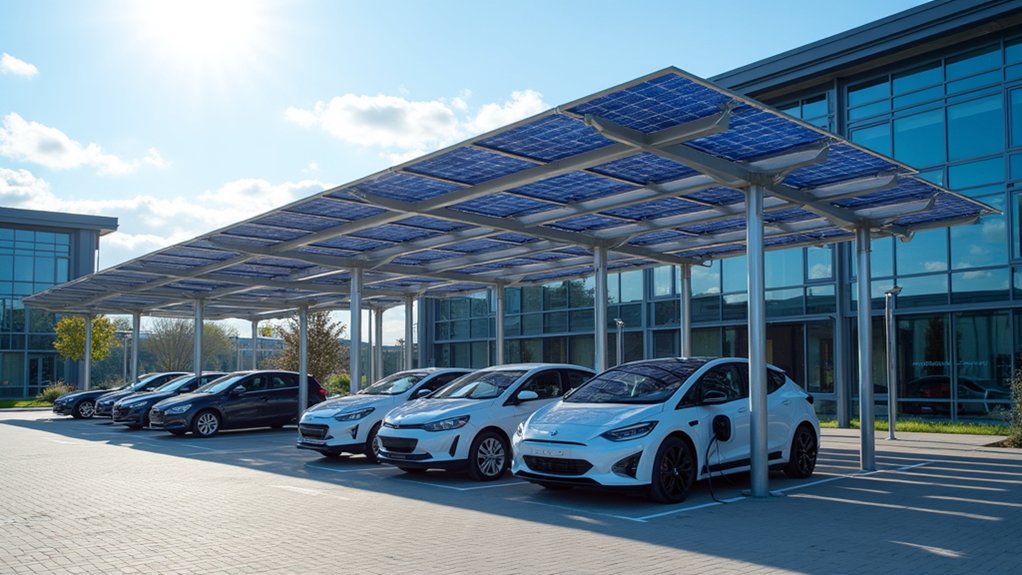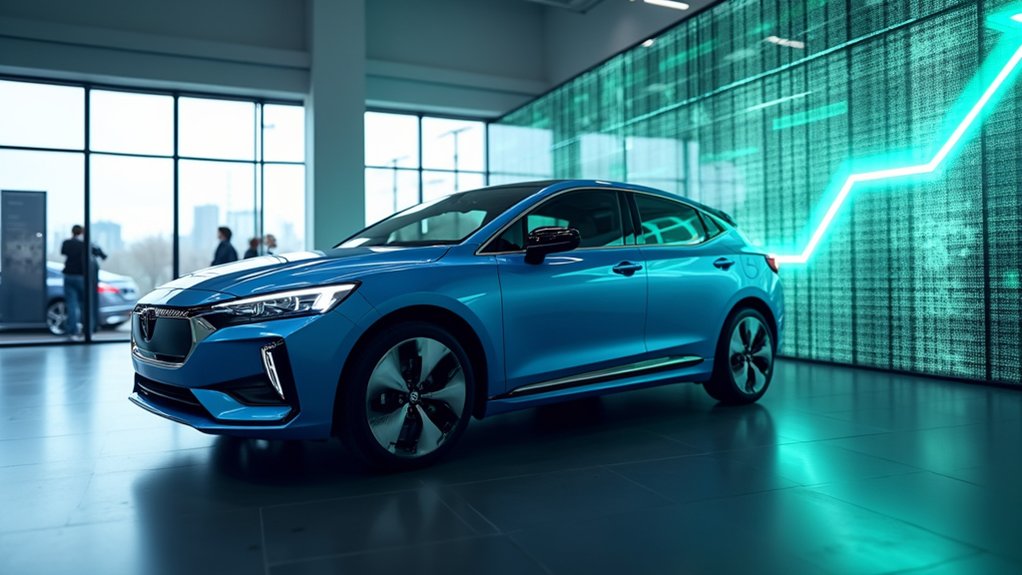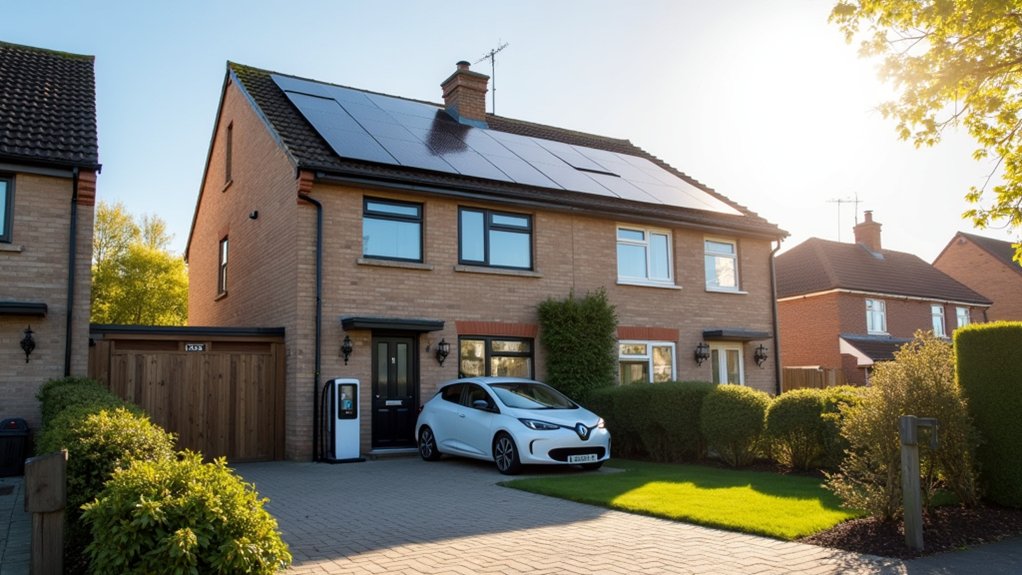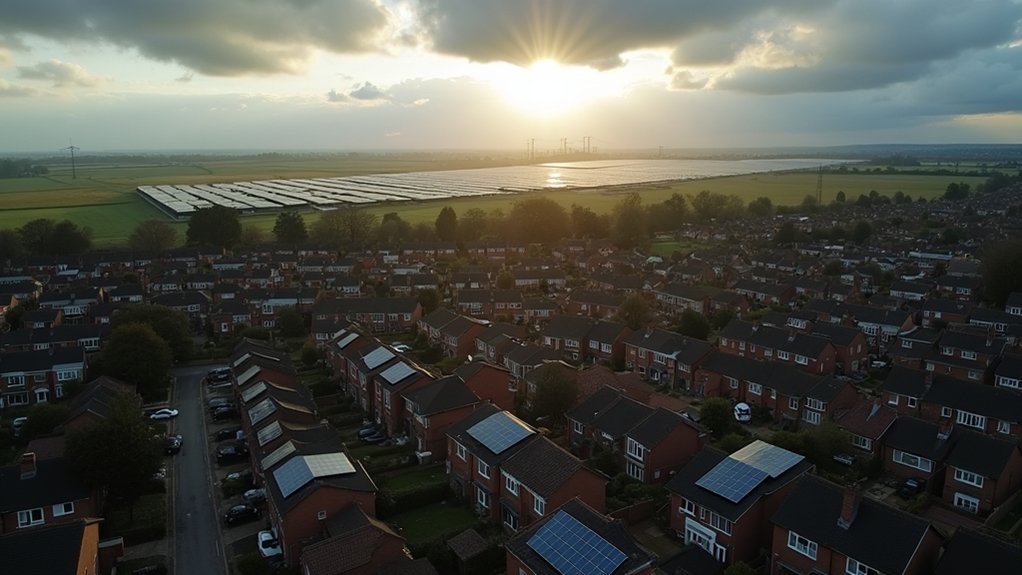The untapped potential of Britain’s vast network of car parks represents one of the most promising frontiers in the nation’s renewable energy landscape. Recent research has identified more than half a million parking spaces suitable for solar carport installation across UK businesses, capable of generating an impressive 1.57GW of clean energy. This significant capacity could free up grid energy equivalent to powering 350,000 homes, fundamentally altering our national energy equation.
Britain’s car parks hold untapped renewable energy potential that could power hundreds of thousands of homes through solar carports.
The economic case for solar carports is compelling. A modest installation covering just 100 parking spaces typically generates over £90,000 worth of power annually, or alternatively, delivers approximately £30,000 in direct energy savings. Per-space metrics translate to £900 in generation value or £300 in cost reduction annually—numbers that should catch any CFO’s attention. Many businesses could potentially generate sufficient energy to cover their entire electricity needs, with excess production sold back to the grid. Businesses like supermarkets and retail parks could save up to £28,000 annually on their energy bills through these solar installations.
Government support has accelerated this shift, with £180 million allocated specifically to boost solar carport development. The Energy Secretary’s approval of nearly 3GW of new solar capacity since July 2024 demonstrates serious commitment to this technology. These installations, sufficient to power roughly one million homes, advance Britain’s ambition to become a clean energy superpower.
Implementation opportunities extend beyond traditional business settings. Over 151,000 suitable parking spaces have been identified in UK schools alone, with further research targeting hotels, hospitals, airports, and sports centers. RenEnergy’s ongoing research is expected to identify additional suitable locations as their work continues. The approach mirrors France’s 2022 mandate requiring car parks with 80+ spaces to incorporate solar panels, with varying compliance timelines based on facility size.
The dual functionality of solar carports proves particularly attractive. Beyond generating clean energy, these structures can seamlessly integrate with the UK’s expanding network of EV charging infrastructure, currently exceeding 76,500 public devices nationwide. The concept epitomizes efficient land utilization—generating renewable power without sacrificing parking functionality.
Such elegant solutions will be instrumental in achieving Britain’s decarbonization targets while enhancing energy security through homegrown power generation.









